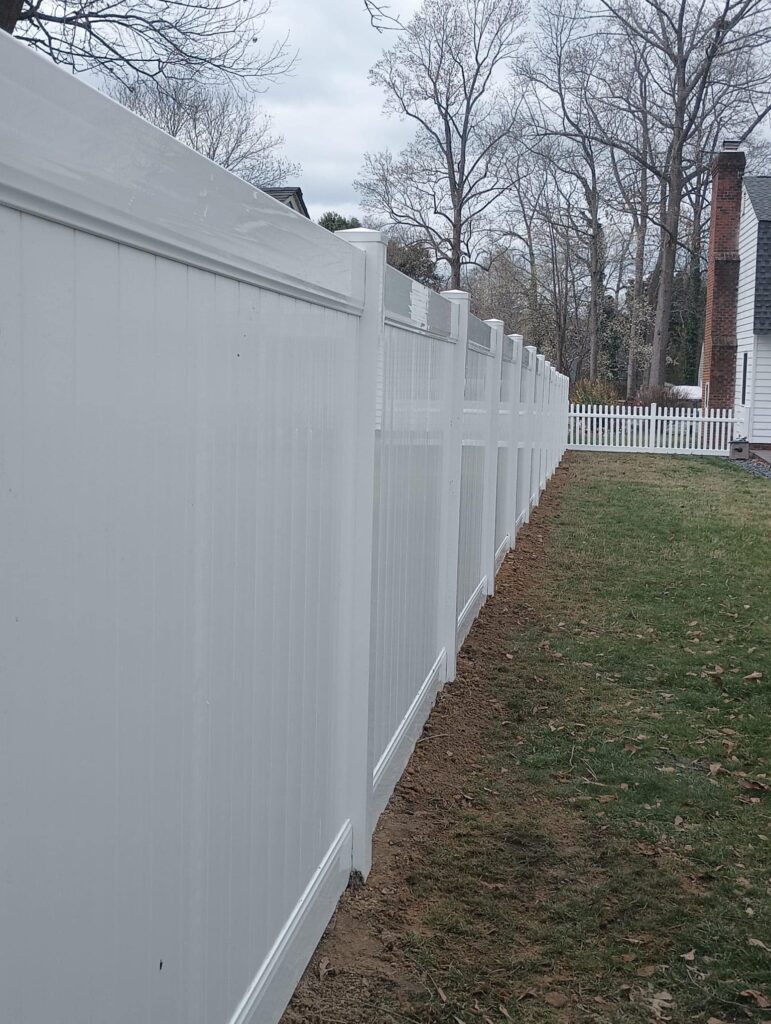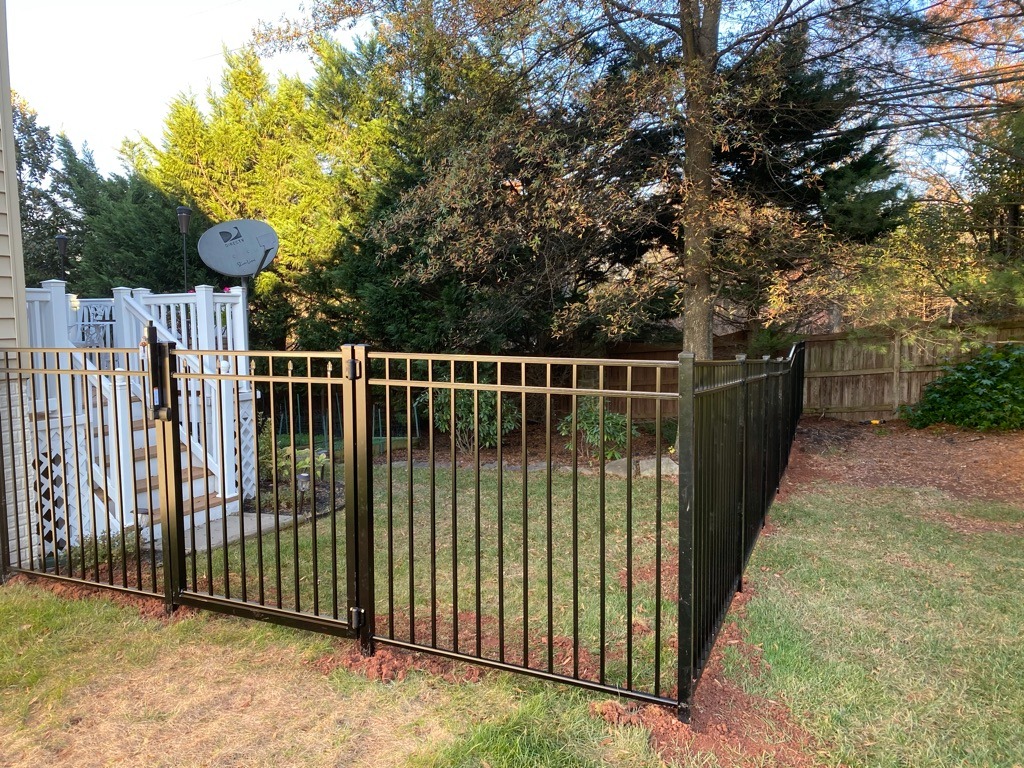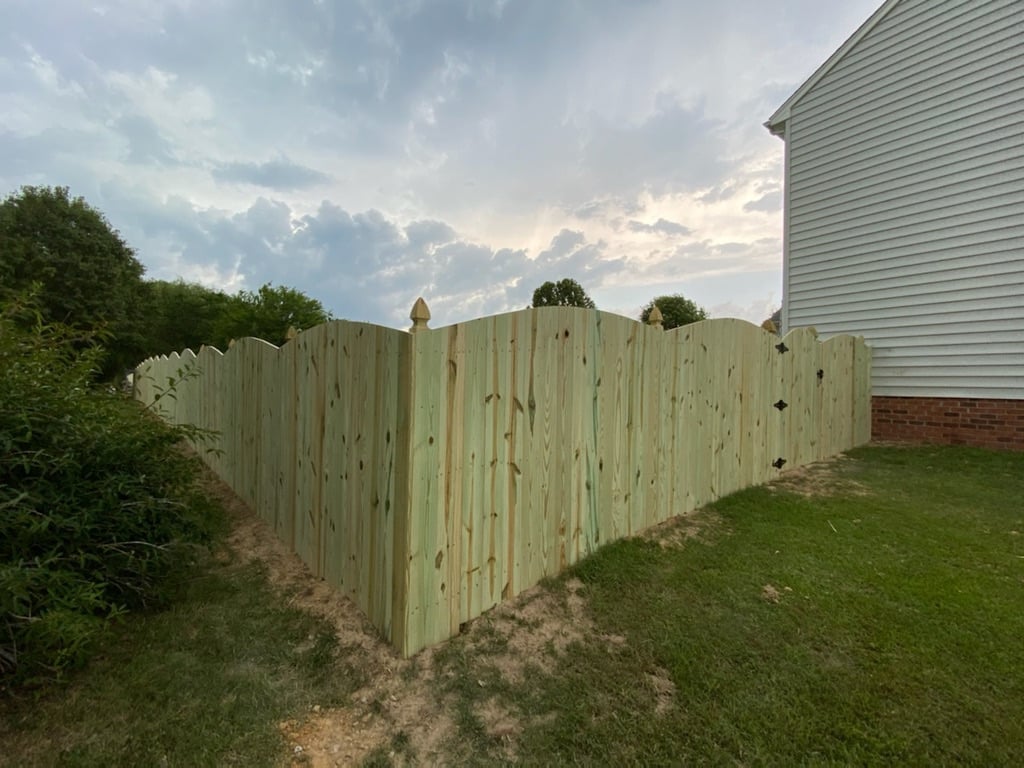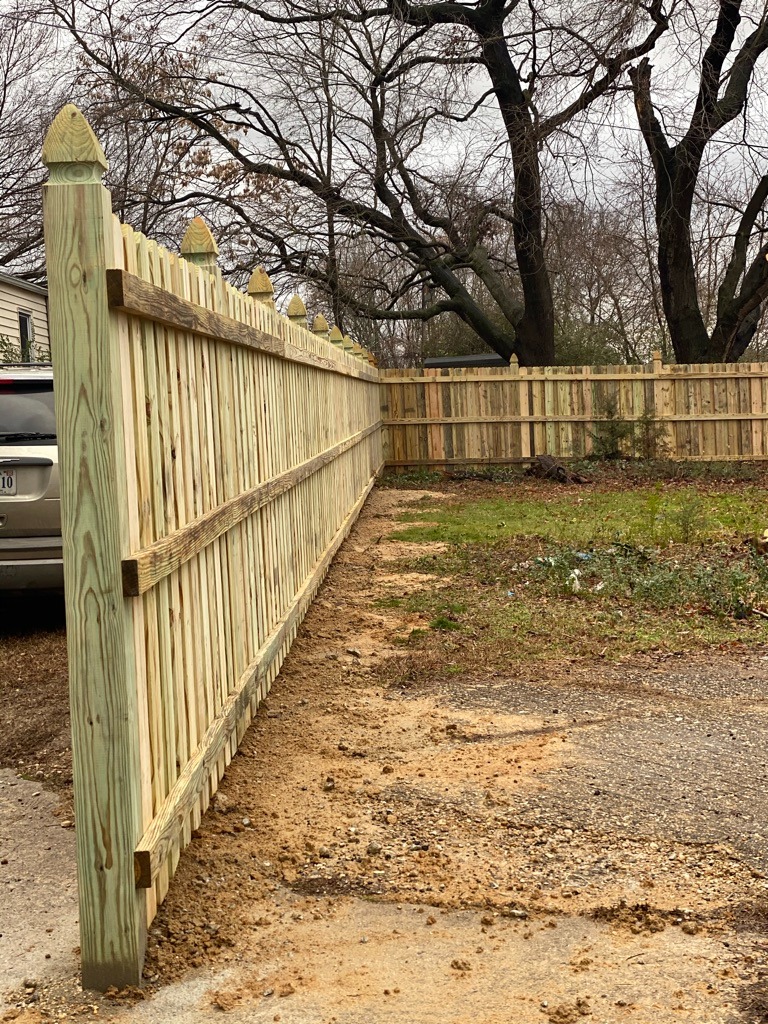Choosing the right fence for your Bellwood home—whether you’re near Jefferson Davis Highway, off Hopkins Road, or tucked behind Bellwood Elementary—can feel overwhelming with so many options available. Should you go with classic wood, low-maintenance vinyl, or durable metal? Each material has distinct advantages, and the “best” choice depends on your specific needs, budget, and preferences.
After installing fences throughout Bellwood and the Richmond area for over 15 years, we’ve seen how different materials perform in Virginia’s climate and which styles work best for local neighborhoods. In this guide, we’ll compare the most popular fence types to help you make an informed decision for your property.
Why Your Fence Choice Matters in Bellwood

Bellwood’s location in Chesterfield County, just minutes from landmarks like Defense Supply Center Richmond and Proctors Creek, means your fence needs to handle Virginia’s humid summers, occasional winter freezes, and severe weather events. The area’s mix of established neighborhoods and newer developments also means your fence choice can significantly impact your home’s curb appeal and property value.
Local factors to consider include climate challenges like hot, humid summers and temperature swings, along with clay-heavy soil conditions in many areas. The neighborhood character features a mix of traditional and contemporary home styles, and your fence choice directly affects property values and resale appeal.
Wood Fencing
Wood remains the most popular fencing material, and for good reason. It offers unmatched versatility and natural beauty that complements both historic and modern homes.
Durability in Bellwood’s Climate
Wood fences typically last 15-25 years with proper maintenance and perform well in Virginia’s climate when properly treated and maintained. Cedar naturally resists moisture and insects, making it ideal for our humid summers, while pressure-treated pine offers excellent value and longevity when regularly stained or sealed.
In Virginia’s climate, wood fencing requires annual inspection for loose boards or hardware and benefits from staining every 2-3 years due to UV-intense summers. Proper drainage becomes essential because of clay soil conditions common in the area.
Maintenance Requirements
Wood fencing requires the most maintenance of any fence type, but many homeowners find it worthwhile for the aesthetic appeal. Annual maintenance tasks include power washing to remove mildew and dirt, inspection for loose or damaged boards, and touch-up staining on high-wear areas.
Every 2-3 years, homeowners should plan for full restaining or sealing, hardware tightening and replacement as needed, and board replacement for damaged sections.
Vinyl Fencing
Vinyl fencing has become increasingly popular in Bellwood, especially among busy homeowners who want beautiful results without ongoing maintenance.
Durability in Local Conditions
Vinyl fences typically last 30+ years and excel in Virginia’s challenging climate. They won’t rot, warp, or fade, and high-quality vinyl withstands temperature extremes from summer heat to winter freezes without cracking.
Regarding weather performance, UV-resistant formulations prevent fading and brittleness, while the non-porous surface resists moisture and mildew. The flexible material handles soil movement in clay conditions, and proper installation ensures wind resistance.
Maintenance Requirements
Vinyl’s biggest selling point is its minimal maintenance needs. Routine care involves annual cleaning with a garden hose or pressure washer, occasional spot-cleaning with mild soap for stubborn stains, and visual inspection for loose hardware.
Long-term maintenance is virtually nonexistent, with individual panels replaceable if damaged. Vinyl never requires painting, staining, or sealing.
Metal Fencing

Metal fencing encompasses several options, each with distinct advantages for properties.
Aluminum Fencing
Aluminum fences typically last 25-40 years and offer the look of wrought iron without the maintenance challenges. They’re particularly popular for front yards and decorative applications in Bellwood’s established neighborhoods.
Aluminum advantages include rust-resistant powder coating, lightweight yet strong construction, minimal maintenance requirements, and professional, upscale appearance. Installation typically costs $15-25 per linear foot.
Chain-Link Fencing
Chain-link fences last 20-30 years and remain popular for practical applications, especially for large properties or areas where security takes priority over aesthetics. Benefits include being the most economical option for large areas, excellent security and visibility, minimal maintenance requirements, and quick installation. Installation typically costs $8-15 per linear foot.
Wrought Iron
True wrought iron provides unmatched elegance and security with a lifespan of 50+ years with proper maintenance, but requires ongoing maintenance in Virginia’s humid climate. Considerations include regular painting requirements to prevent rust, higher installation and maintenance costs, and excellent performance for decorative and security applications. Installation typically costs $25-40 per linear foot.
Metal Fencing Maintenance
Aluminum requires annual cleaning and occasional hardware inspection. Chain-link needs minimal care with inspection for damage after storms. Wrought iron requires annual rust inspection and repainting every 3-5 years.
Metal fencing works best for security-conscious homeowners, properties requiring decorative front yard fencing, commercial or large residential properties, and areas where durability outweighs initial cost.
Local Style Trends in Bellwood
Based on recent installations throughout Bellwood and surrounding Chesterfield County areas, distinct preferences emerge in different neighborhood types.
Established Neighborhoods
Homeowners in older neighborhoods often choose cedar privacy fences with traditional board-on-board design, aluminum decorative fencing for front yards, and wood picket fences for cottage-style homes.
Newer Developments
Contemporary homes typically feature vinyl privacy fences in gray or tan colors, horizontal wood slat designs for modern appeal, and mixed materials combining stone pillars with fence panels.
Climate-Driven Choices
Virginia’s weather influences material selection, with vinyl gaining popularity due to storm resistance, cedar preferred over pine for better moisture resistance, and powder-coated aluminum chosen over raw metal.
Making Your Decision: Key Questions

Before choosing your fence type, consider these essential questions about your primary goals, maintenance preferences, timeline, and budget.
If your primary goal focuses on privacy, wood or vinyl privacy styles work best. For security needs, chain-link or aluminum with narrow spacing provides optimal protection. Aesthetic appeal calls for wood, vinyl, or decorative aluminum, while property definition works with any material.
Regarding maintenance preferences, choose vinyl or aluminum for minimal upkeep, chain-link for moderate care, or wood if you don’t mind regular maintenance tasks.
Timeline considerations include chain-link or vinyl for quick installation, wood or aluminum when custom work is acceptable, and any material for weather-dependent scheduling flexibility.
Budget considerations favor chain-link for lowest upfront cost, vinyl for best long-term value, and wood or aluminum for balancing cost and appeal.
Still weighing whether it’s cheaper to build your own or hire a pro? Read our full breakdown on building vs buying a fence in Bellwood for 2025.
Climate-Specific Recommendations for Bellwood
For Virginia’s Humid Summers
Vinyl offers complete moisture resistance, cedar provides natural moisture and insect resistance, and aluminum won’t rust or deteriorate. Avoid untreated wood or steel without proper coating.
For Storm Resistance
Vinyl provides flexible and impact-resistant performance, chain-link allows wind to pass through, properly-installed wood performs well with quality hardware, and aluminum’s lightweight construction reduces wind load.
For Clay Soil Conditions
All fence types can work in Bellwood’s clay soil with proper installation. Concrete footings are recommended for all materials, proper drainage remains essential around posts, and professional installation proves worth the investment.
Installation Timing for Bellwood

The best seasons for fence installation include spring (March-May) with ideal weather but high contractor demand, and fall (September-November) offering good conditions with more availability. Winter (December-February) provides possible savings but weather delays.
Summer (June-August) represents the worst timing due to extreme heat, peak pricing, and contractor availability issues.
Getting Professional Help
Choosing the best fence type for your Bellwood property involves balancing multiple factors. Consider consulting with local fence contractors who understand Chesterfield County regulations and permit requirements, local soil conditions and installation challenges, neighborhood characteristics and HOA requirements, and climate-specific material performance.
Frequently Asked Questions
What's the most popular fence type in Bellwood neighborhoods?
Wood privacy fences remain most popular, followed closely by vinyl. Cedar and pressure-treated pine dominate wood choices, while white and tan vinyl are preferred colors. The trend is shifting toward vinyl in newer developments due to maintenance advantages.
Which fence type offers the best return on investment for Bellwood homes?
Well-maintained wood and vinyl fences typically offer the best ROI, adding 50-80% of installation cost to home value. The key is choosing a style that complements your neighborhood's character. Avoid overly unique materials that might not appeal to future buyers.
How do different fence types handle Virginia's severe weather?
Vinyl performs best in storms due to its flexibility and impact resistance. Chain-link allows wind to pass through, reducing stress. Wood can handle severe weather well with proper installation and maintenance. Aluminum is lightweight but may bend in extreme conditions.
What fence height works best for privacy in Bellwood?
Six-foot fences provide optimal privacy while remaining neighborly. Check Chesterfield County regulations and any HOA requirements, as some areas restrict front yard fence heights to 4 feet. Corner lots often have additional restrictions for visibility.
Which fence type requires the least maintenance in Virginia's climate?
Vinyl requires the least maintenance, needing only occasional cleaning. Aluminum ranks second, requiring annual cleaning and hardware checks. Chain-link needs minimal care but may require rust treatment over time. Wood requires the most maintenance with regular staining and repairs.
